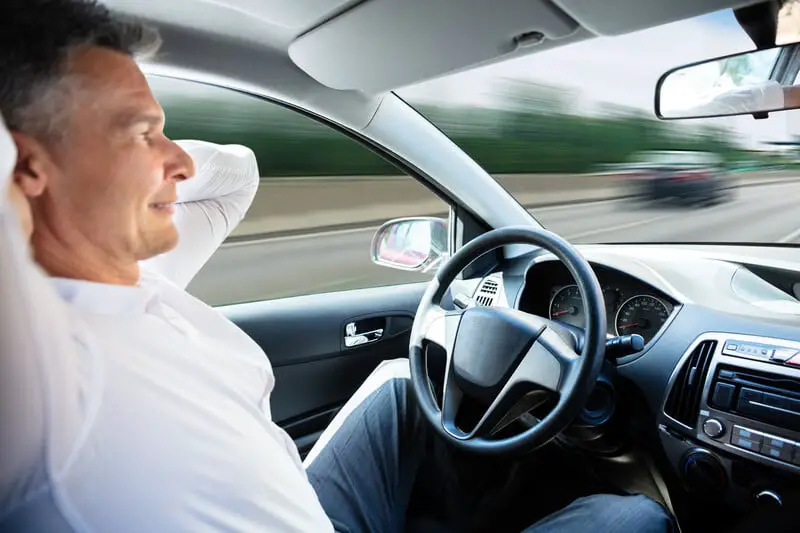The Self-Driving Cars Debate: Is It Really Worth It?
Ever since self-driving cars became a 21st-century reality, the debate on their future has continued for years. What dangers do they present? What are the pros and cons? How much will it cost? Is it viable? Well, one thing is sure…. self-driving cars are here to stay. Big tech companies like Google, Uber, Tesla, and Mercedes already have self-driving prototype cars doing test runs in Europe and the United States. Heck! Even Apple recently announced that they’re working on the ‘mother of all artificial intelligence’ that will be used to power self-driving cars. Quite sooner than expected, it is estimated that self-driving cars will be available to the public soon. Before you make a case for or against autonomous vehicles, you must consider the facts.

The Pros
Reduces Accidents
At least 30,000 people are killed due to road accidents every year in the United States. Road accidents are the leading cause of death among teenagers in the U.S. It is unsurprising that 90 percent of the road accidents that cause death and injury are blamed on human error that could be easily prevented. Top on the list is driver distraction, which is responsible for 30 percent of road accidents. The good news is driverless vehicles can eliminate human error, thus reducing traffic-related collisions by 90 percent.
Reduce Traffic Snarl Up
Autonomous vehicles can communicate with the vehicles on the road. This will help to predict and avoid traffic problems before they happen. Moreover, while in large numbers, self-driving cars engage in a technique known as platooning to reduce traffic congestion and save up gasoline.
Saves Time
Since an autonomous car drives itself with the help of a computer, the drivers can use that time to do other things like work on a late job assignment, eat, sleep, drink, and even text without worrying about their safety.
Reduces Traffic Related Offences
Self-driving cars would make it legal to drink and drive; hence, the number of drivers getting arrested for driving under the influence would drop significantly. Well, technically, it is the computer that is the designated driver in case you get one too many in the bar. Other traffic offenses like texting and eating while driving will also be excused on an autonomously activated car.
Improve public transportation
Major cities often face challenges in providing adequate public transportation with the appropriate infrastructure. However, an entry of self-driving vehicles into the market would increase public transportation services and reduce auto ownership, hence cutting the cost of public transportation even in less populated areas.
Reduce Car Insurance Premiums
Accidents will be rare since computerized autonomous vehicles are not prone to human error. Insurance companies will be forced to reduce their premiums and increase the payout since the risk will be low. Even teenagers and grandmas will likely get the same insurance premium as everybody regarding self-driving cars.
Convenient for the old aged and disabled
Most people have a grandma they would not trust behind the wheel. Every time you take the car keys away from her, you feel bad telling her she is too old to drive. But with a self-driving car, all you have to do is activate a command, and the car will take your grandma anywhere without her ever touching the steering wheel. The same case applies to disabled people who are unable to drive. Remember, 45 percent of the disabled people in the United States still work, and self-driving vehicles would be a game-changer.
Better parking efficiency
It is usually a headache to park in major cities across the United States. If you park in the wrong place, you risk getting towed. Even if you find a parking spot in a major city, it is either too costly or far from your business locale. A self-driving car will drop you at your convenience and self-park at a further location without your presence on the steering wheels.
The Cons
Vulnerable to hackers
The most alarming issue raised by those who are against self-driving cars is a potential security breach. Most hackers are very interested in finding security loopholes in computerized autonomous vehicles. The worst-case scenario of a hacked self-driving vehicle is another person taking control of your car against your wishes. Fortunately, self-driving car developers know that problem and expect the self-driving program to come with a firewall to avert hack attacks.
Loss of jobs
Road-related accidents will be reduced, but many people will lose their jobs. Taxi drivers, bus drivers, chauffeurs, and even driving school drivers will be replaced by computers if self-driving cars are fully implemented.
Programming error
There is no such thing as the perfect technology. For instance, an autonomous vehicle cannot read a pedestrian’s body language. A driver will cue a pedestrian to cross the road in a usual human-to-human interaction. However, various tests with self-driving cars have proved there is an awkward cue communication between a pedestrian and a self-driving vehicle. It is also possible for a programming error to cause an accident, which begs the question, who is to blame when a self-driving car causes an accident? What if there is a heavy storm and the laser sensors are destroyed?
Expensive infrastructure
For autonomous vehicles to be fully implemented, new roads and infrastructures that are friendly to self-driving vehicles must be built. Even the traffic lights have to be built with transmitters to enhance easier interaction.
Will there be a time when only a few countable drivers on the road know how to operate a steering wheel with no computerized assistance? Or a time when all you need to get a driver’s license is to show your ability to operate a simple computer in an automobile? Regardless, change is inevitable, and self-driving cars are already here.
